Why Reishi Mushroom Is Your Ally Against Modern Stress
Reishi for stress and fatigue is a powerful natural solution backed by both ancient wisdom and modern science. If you're feeling overwhelmed and exhausted, here's what you need to know:
| How Reishi Helps With Stress & Fatigue | Details |
|---|---|
| Adaptogenic Properties | Helps the body adapt to stress by regulating the HPA axis and balancing cortisol levels |
| Key Compounds | Contains triterpenes and beta-glucans that support the nervous system and immune function |
| Typical Dosage | 1.5-9 grams of extract daily (most supplements contain 500mg-1g per serving) |
| Time to Notice Effects | Most people report benefits within 2-4 weeks of consistent use |
| Best Taken | Evening use may improve sleep quality, which helps combat fatigue |
In our world, chronic stress and persistent fatigue have become unwelcome companions for many of us. The constant demands of work, family responsibilities, and digital connectivity leave little room for recovery, creating a cycle that depletes our energy and resilience.
Reishi for stress and fatigue offers a natural approach to breaking this cycle. Known scientifically as Ganoderma lucidum and revered as the "mushroom of immortality" in Traditional Chinese Medicine, reishi has been used for over 2,000 years to promote calm, improve vitality, and support overall wellbeing.
What makes reishi particularly effective for modern stress is its adaptogenic nature. Rather than simply stimulating or sedating your system, reishi helps normalize bodily functions, particularly the stress response. A randomized study of 132 people with neurasthenia (a condition characterized by fatigue and stress) found that 8 weeks of reishi supplementation significantly reduced fatigue and improved wellbeing compared to placebo.
Unlike caffeine or other quick fixes that can lead to crashes, reishi works with your body's natural rhythms, helping to regulate the hypothalamic-pituitary-adrenal (HPA) axis—your body's central stress response system. The mushroom's triterpenes may also support GABA pathways in the brain, promoting relaxation without sedation.
I'm Brandi Garden, co-founder of Eversio Wellness, and my journey with reishi for stress and fatigue began through my own struggles with autoimmune challenges and burnout, which led me to find the healing potential of functional mushrooms like reishi.
What Is Reishi Mushroom?
When we talk about reishi for stress and fatigue, we're referring to one of nature's most remarkable treasures. Reishi mushroom (Ganoderma lucidum) isn't your average fungi. With its distinctive glossy, reddish-brown fan-shaped cap, this mushroom has earned its place as one of the most revered natural remedies in Eastern medicine for thousands of years.
Known as "Lingzhi" in China and "Reishi" in Japan, this extraordinary mushroom grows on hardwood trees in the hot, humid forests throughout Asia. What makes reishi special isn't its taste (it's actually quite bitter and woody) but rather its incredible concentration of bioactive compounds that support our body's natural ability to handle stress.
At Eversio Wellness, we take special care to grow our reishi mushrooms using the traditional Dì Dào method. This ancient cultivation concept ensures mushrooms are grown in their spiritual and native homeland – the precise environment, atmospheric energy, pressure, and altitude where they naturally thrive. When mushrooms are grown Dì Dào, they deliver their intended spiritual energy and potency to the body.
Unlike the button mushrooms you might cook with, reishi contains over 400 bioactive compounds, including polysaccharides, triterpenes, sterols, and proteins that work together to support your body's natural functions. What makes reishi for stress and fatigue particularly valuable is its classification as an adaptogen – a natural substance that helps your body adapt to stress and exerts a normalizing effect on bodily processes.
Reishi's Long History of Easing Fatigue
The use of reishi for restoring energy and vitality dates back at least 2,000 years in Chinese medicine, though some historical accounts suggest people have been using it for up to 4,000 years. In ancient China, reishi was so highly valued that it was reserved exclusively for emperors and nobility, earning poetic nicknames like "mushroom of immortality" and "divine mushroom of longevity."
Ancient Taoist texts describe reishi as a superior herb that cultivates "spirit energy" or "shen," promoting longevity, enhancing vital energy (qi), and sharpening mental clarity. The Classic of Herbal Medicine (Shen Nong Ben Cao Jing), written around 200 CE, classified reishi in the most esteemed category of herbs – those that could be taken continuously over a lifetime to promote longevity without any toxic effects.
What's fascinating is how closely these traditional uses align with our modern understanding of reishi for stress and fatigue. Where ancient practitioners described reishi as nourishing vital energy and calming the spirit, today we understand these effects in terms of adaptogenic support for the HPA axis and modulation of the stress response.
Throughout history, reishi was specifically prescribed for conditions we might now recognize as chronic fatigue, burnout, and stress-related disorders. Traditional healers believed it would "calm the spirit and quiet the heart" – a poetic way of describing what modern science confirms as reishi's ability to support the parasympathetic nervous system and promote relaxation.
The wisdom of these ancient practitioners has stood the test of time, as more people find the gentle yet powerful ways that reishi for stress and fatigue can help restore balance in our hectic modern lives.
Reishi for Stress and Fatigue: How It Calms the HPA Axis
When we talk about reishi for stress and fatigue, we need to understand what's happening in your body when you feel overwhelmed. At the heart of your stress response is the hypothalamic-pituitary-adrenal (HPA) axis – a complex communication network between three important glands that orchestrate how you react to life's challenges.
Here's what happens: When stress hits, your hypothalamus sends chemical messengers to your pituitary gland, which then signals your adrenal glands to release cortisol. This stress hormone helps you respond to immediate threats – a useful survival mechanism. But in our modern world, where stressors are constant but rarely life-threatening, this system often stays switched on, leading to chronically liftd cortisol levels that can drain your energy and affect your mood.
This is where reishi mushroom shines. Research suggests that reishi works as an adaptogen, helping to regulate this HPA axis rather than simply stimulating or sedating your system. A study published in the Journal of Ethnopharmacology found that reishi extract could help normalize cortisol levels in chronically stressed individuals, essentially teaching your body to respond more appropriately to stress triggers.
Unlike caffeine that forces your body into alertness or sedatives that artificially calm you down, reishi works with your natural physiology. By supporting healthy adrenal function and helping balance cortisol production, reishi helps your body maintain its energy reserves while becoming more resilient to daily stressors.
What's particularly impressive about reishi's effects on stress and fatigue is that it addresses the root causes rather than just masking symptoms. A randomized study of 132 people with neurasthenia (a condition characterized by persistent fatigue and stress) found that after 8 weeks of reishi supplementation, participants experienced significant improvements in wellbeing and reductions in fatigue compared to those taking a placebo.
Nervous-System Pathways Behind "Reishi Calm"
The peaceful feeling many people report when taking reishi – sometimes called "reishi calm" – isn't just psychological. It's rooted in specific biochemical pathways in your nervous system.
One key mechanism involves reishi's interaction with GABA (gamma-aminobutyric acid), your brain's primary calming neurotransmitter. When GABA receptors are activated, they produce a natural calming effect that helps quiet an overactive mind. Research published in the Journal of Pharmacological Sciences finded that triterpenes in reishi can improve GABA receptor function, creating effects similar to your body's natural relaxation response.
This explains why reishi helps with sleep without causing the grogginess associated with sleep medications. A 2012 study in the Journal of Ethnopharmacology found that reishi extract reduced the time it takes to fall asleep and increased overall sleep duration in research models. The researchers attributed these benefits directly to reishi's GABAergic properties.
Even more fascinating is reishi's newly finded gut-brain connection. Recent research published in Scientific Reports revealed that reishi promotes healthy sleep through a pathway that involves both the gut microbiome and serotonin – the neurotransmitter essential for mood regulation and sleep quality. This helps explain why many people experience improved mood alongside better sleep when taking reishi consistently.
These nervous system effects create a state of calm alertness rather than sedation – reishi isn't suppressing your system but rather helping it function more efficiently.
Reishi for Stress and Fatigue in Everyday Life
The benefits of reishi for stress and fatigue translate into real improvements for common life challenges:
For work-related burnout, reishi helps moderate those cortisol spikes that come with tight deadlines and workplace pressure. That 8-week study of people with neurasthenia I mentioned earlier showed significant reductions in fatigue and improvements in overall wellbeing – precisely what's needed when work demands feel overwhelming.
Parents dealing with the constant alertness required for childcare find that reishi's support of the parasympathetic nervous system (your "rest and digest" mode) helps maintain calm energy throughout demanding days with children.
Athletes and fitness enthusiasts benefit from reishi's anti-inflammatory and adaptogenic properties, which help with post-workout recovery. Physical stress triggers many of the same physiological responses as mental stress, and reishi helps the body recover more efficiently from intense exercise.
Many people report that reishi helps them achieve deeper, more restorative sleep without morning grogginess. A 2021 study found that reishi extract improved sleep quality through GABAergic mechanisms, suggesting it improves natural sleep processes rather than forcing sleep artificially.
During particularly demanding times of year – holiday seasons, tax time, or major life transitions – reishi can help buffer your body against the effects of temporary stress increases, preventing the energy crashes that often follow these high-demand periods.
What makes reishi particularly valuable is that it doesn't mask fatigue with stimulation or force relaxation through sedation. Instead, it helps restore your body's natural rhythms and regulatory systems, promoting sustainable energy and resilience that builds over time with consistent use.
Inside the Mushroom: Bioactive Compounds That Fight Exhaustion
Have you ever wondered what makes reishi for stress and fatigue so effective? The secret lies deep within this remarkable mushroom's cellular structure. While reishi contains over 400 different bioactive compounds, two major groups stand out as the real powerhouses behind its energy-restoring and stress-relieving properties: beta-glucans and triterpenes.
These natural compounds work together like a well-orchestrated team, each playing distinct but complementary roles in supporting your body's resilience to exhaustion. Let's peek inside the mushroom to understand how these compounds help you bounce back from fatigue.
Why Beta-Glucans Matter for Energy
Beta-glucans are complex polysaccharides (fancy talk for chains of sugar molecules) that form a significant part of reishi's cell walls. While they're widely known for boosting immune function, their role in fighting fatigue is equally impressive but often overlooked.
So how exactly do beta-glucans help with energy levels? The connection lies in inflammation and immune balance. When you're chronically stressed, your body triggers inflammatory processes that silently drain your energy reserves and burden your immune system. Beta-glucans help regulate this inflammatory response, essentially preventing your body from wasting precious energy on unnecessary inflammation.
A 2019 review in the International Journal of Medicinal Mushrooms found that beta-glucans from medicinal mushrooms like reishi can modulate cytokine production (the signaling molecules that drive inflammation), helping to prevent the energy-draining effects of excessive inflammation. By supporting a balanced immune response, beta-glucans help conserve energy that would otherwise be diverted to inflammatory processes.
Beta-glucans also appear to support your cellular powerhouses—the mitochondria. These tiny structures produce ATP, your body's energy currency. Research suggests that beta-glucans help protect mitochondria from oxidative damage, potentially improving energy production at the cellular level. When your mitochondria function better, you simply have more energy available.
Triterpenes: Nature's Sedative & Stress Buffer
If beta-glucans are the energy conservationists of reishi, triterpenes—particularly ganoderic acids unique to reishi—are its stress managers. These compounds are responsible for reishi's characteristic bitter taste and possess remarkable biological activities that directly impact your stress response system.
Research has shown that reishi's triterpenes can:
- Modulate the HPA axis to help normalize cortisol production
- Support GABA receptor function, promoting relaxation without sedation
- Protect neurons from stress-induced damage
- Influence serotonin pathways involved in mood regulation and sleep
A study published in the Journal of Neurochemistry found that certain triterpenes in reishi protected neurons against oxidative stress—a common consequence of chronic stress that can contribute to mental fatigue and cognitive difficulties. This neuroprotective effect may explain why many people report improved mental clarity when taking reishi consistently.
Triterpenes also play a key role in reishi's sleep-enhancing effects. A 2012 study in the Journal of Ethnopharmacology demonstrated that reishi extract prolonged sleep time in rats, with the effect attributed primarily to its triterpene content. Better sleep translates directly to improved energy levels during the day—a simple but powerful benefit.
What makes reishi for stress and fatigue particularly effective is the synergy between these compounds. The beta-glucans address the immunological and inflammatory aspects of chronic stress, while the triterpenes work more directly on the nervous system and hormonal regulation. Together, they provide comprehensive support for your body's stress response system and energy management.
At Eversio Wellness, we ensure our reishi products maintain high levels of both beta-glucans and triterpenes through our careful Dì Dào cultivation and dual extraction methods. This traditional approach ensures the mushroom delivers its intended spiritual energy and potency to your body, helping you find that sweet spot between calm and energy that makes daily life more manageable.
Evidence Check: What Science Says
When it comes to reishi for stress and fatigue, don't just take our word for it—science has plenty to say about this remarkable mushroom's effects. While traditional use spans thousands of years, modern research is now confirming what ancient healers understood intuitively.
One of the most compelling studies is a randomized, double-blind, placebo-controlled trial (the gold standard of research design) involving 132 people with neurasthenia—a condition characterized by persistent fatigue, headaches, irritability, and sleep disturbances. After 8 weeks of consistent reishi supplementation, participants experienced significant improvements in fatigue levels and overall wellbeing compared to those taking a placebo. This wasn't just a small effect—the reishi group showed a 28% reduction in fatigue scores compared to just 7% in the placebo group.
Sleep quality is another area where reishi shows promise. A 2012 study published in the Journal of Ethnopharmacology found that reishi extract significantly extended sleep duration in laboratory studies. The researchers concluded that reishi "may be beneficial for the treatment of insomnia due to its sleep-promoting effects." This aligns perfectly with what many people report anecdotally—deeper, more restorative rest without the groggy morning-after feeling that comes with many sleep aids.
Fascinating new research from 2021 published in Scientific Reports has uncovered a surprising mechanism behind reishi's effects on sleep and stress: researchers finded that reishi actually promotes sleep through a gut microbiota-dependent pathway that involves serotonin. This groundbreaking finding highlights the growing understanding of the gut-brain connection in managing stress and fatigue.
Even for particularly challenging forms of exhaustion, reishi shows benefits. A 2012 study found that just 4 weeks of reishi powder supplementation reduced fatigue, anxiety, and depression while improving quality of life in breast cancer patients—a population that experiences some of the most severe and treatment-resistant fatigue.
Animal studies have provided further insights into how reishi works. Research published in the Journal of Pharmacological Sciences demonstrated that reishi extract contains compounds that interact with GABA receptors in the brain, which helps explain its anxiety-reducing and sleep-promoting effects. Additionally, a 2017 study in the International Journal of Medicinal Mushrooms found that reishi extract reduced stress-induced elevations in cortisol and improved measures of stress resilience.
Reishi for Stress and Fatigue—Key Study Snapshot
Let's take a closer look at the neurasthenia study, as it provides some of the strongest human evidence for reishi for stress and fatigue:
The trial included 132 patients diagnosed with neurasthenia who were given either reishi extract (1800 mg three times daily) or a placebo for 8 weeks. Beyond the impressive reduction in fatigue scores mentioned earlier, participants taking reishi also experienced significant improvements in sleep quality and duration, better mental clarity, and improved mood—all without significant adverse effects.
What makes this study particularly valuable is its rigorous methodology. The double-blind, placebo-controlled design helps rule out both the placebo effect and researcher bias, providing reliable evidence of reishi's benefits.
Another noteworthy study focused specifically on cancer-related fatigue—one of the most difficult types of exhaustion to treat. In this controlled clinical trial, women with breast cancer experiencing post-treatment fatigue took reishi spore powder (1000 mg three times daily) for 4 weeks. The results were remarkable: significant reductions in fatigue severity, decreased anxiety and depression scores, improved overall quality of life, and even improved immune parameters.
What's particularly encouraging about the research is the consistency of findings across different populations and study designs. While individual results always vary, the evidence suggests that reishi can be a valuable tool for addressing fatigue and stress-related symptoms when used consistently over several weeks.
It's worth noting that most research indicates that reishi's benefits build gradually with regular use rather than providing immediate relief. This aligns with the traditional understanding of adaptogens—they work best when incorporated into your daily routine, gently supporting your body's natural resilience over time.
At Eversio Wellness, we're committed to offering products backed by both ancient wisdom and modern science, which is why we're so excited about the growing body of research supporting reishi for stress and fatigue.
Forms, Dosage, and Safety Essentials
Finding the right form and dosage of reishi for stress and fatigue can make all the difference in your results. Let's break down what you need to know to get the most from this remarkable mushroom.
Forms of Reishi
The way you take reishi can significantly impact its effectiveness. At Eversio Wellness, we're particularly thoughtful about how we prepare our reishi products:
Dual-Extract Capsules offer the most convenient and precisely measured option for daily use. Our Reishi capsules contain both water and alcohol extractions (dual extract) to capture the full spectrum of beneficial compounds. This matters because while beta-glucans are water-soluble, those stress-relieving triterpenes we talked about earlier can only be properly extracted using alcohol. Without dual extraction, you'd miss half the benefits!
Powders give you flexibility to add reishi to your favorite drinks. Look for dual-extracted powders from the whole fruiting body (not mycelium) for maximum potency. They blend easily into coffee, smoothies, or tea.
Tinctures provide quick absorption and flexible dosing. The liquid form allows for easy adjustments, though quality can vary significantly between products.
Whole Dried Mushroom follows traditional preparation methods—simmering dried reishi slices for several hours to extract beneficial compounds. It's time-consuming but connects you to thousands of years of traditional use.
Teas offer a simple way to enjoy reishi's benefits, though they typically contain lower concentrations of active compounds than extracts.
Effective Dosage Guidelines
Research on reishi for stress and fatigue has used a wide range of dosages, typically between 1.5 to 9 grams of extract daily. Here's what that means for you:
For capsules, most people take 1-2 capsules (500-1000mg) 1-3 times daily. Our Chill Now Reishi capsules at Eversio Wellness contain 500mg of organic reishi extract per capsule, with a recommended dosage of 1-2 capsules daily.
With powders, start with about ½ to 1 teaspoon (approximately 1-2 grams) daily mixed into your favorite beverage.
It's generally best to start with a lower dose and gradually increase as your body adjusts. Most people begin noticing benefits after 2-4 weeks of consistent use, as reishi works gradually to support your body's natural balance rather than providing an immediate effect.
Safety Profile and Potential Side Effects
Reishi has an excellent safety record spanning thousands of years of use, but it's still important to be aware of potential side effects:
Some people experience mild digestive discomfort when first starting reishi, though this typically subsides as your body adjusts. Dry mouth or throat, occasional dizziness (usually with higher doses), and skin rashes in sensitive individuals have also been reported.
A research study tracking people taking reishi for 4 months found that participants taking reishi were almost twice as likely to experience minor side effects compared to those taking a placebo, though these effects were generally mild and well-tolerated.
While traditional use suggests reishi can be taken long-term, most modern clinical studies have examined periods of 4-12 weeks. Some practitioners recommend cycling reishi use—taking it for 2-3 months, then taking a break for a few weeks—for optimal results.
Who Should Skip or Speak to a Pro First?
While reishi is generally safe for most people, certain groups should consult a healthcare provider before adding it to their routine:
If you take blood thinners like warfarin or aspirin, be cautious. Reishi has mild anticoagulant properties that could improve these medications' effects.
People with bleeding disorders should exercise caution due to reishi's mild blood-thinning effects.
If you have low blood pressure, monitor your response carefully, as reishi may further lower blood pressure.
Those on immunosuppressant drugs should consult their doctor, as reishi's immune-modulating effects might interact with these medications.
If you're scheduled for surgery, discontinue reishi at least 2 weeks before any procedure due to its mild blood-thinning properties.
Pregnant or breastfeeding women generally should avoid reishi due to limited safety data in these populations.
As with any supplement, it's always wise to have a conversation with your healthcare provider before starting reishi, especially if you have existing health conditions or take medications. This personalized guidance ensures you can safely incorporate reishi into your wellness routine.
Making Reishi a Daily Ritual
Incorporating reishi for stress and fatigue into your everyday life doesn't have to be complicated. In fact, creating a simple, consistent ritual around your reishi consumption can both improve its effectiveness and help you maintain the habit long enough to experience real benefits. Let me share some practical ways to make reishi part of your daily rhythm.
Morning Routines
Starting your day with reishi can set a calm, focused tone that carries through your activities. Try adding 1/2 teaspoon of reishi powder to your morning coffee—the mushroom's earthy bitterness actually complements coffee quite nicely, and you'll get balanced energy without the jittery crash that often comes with caffeine alone.
If smoothies are more your style, blend reishi powder into a morning stress-defense smoothie with other supportive ingredients like spinach (for magnesium), blueberries (for antioxidants), and a clean protein source to stabilize your blood sugar. This combination creates a powerful foundation for stress resilience.
For simplicity, taking reishi capsules with breakfast ensures you don't forget your daily dose. I find placing them next to my coffee maker or breakfast plates creates an automatic reminder that's hard to miss.
Evening Wind-Down
Many people find reishi particularly beneficial in the evening, when its calming properties can help transition your body and mind toward rest. An evening reishi tea ritual about an hour before bed signals to your body that it's time to shift into relaxation mode. Simply steep your reishi (whether as a tea bag or powder) in hot water for 5-10 minutes, then sip mindfully as you wind down.
For a doubly soothing nighttime beverage, try adding reishi powder to traditional golden milk—warm milk (dairy or plant-based) with turmeric and other warming spices. The combination supports both stress reduction and sleep quality.
If convenience matters most, taking reishi capsules in the evening can support sleep quality without any preparation time. Many of our customers at Eversio Wellness report that this simple evening habit improves their sleep depth and morning energy levels.
Mindful Consumption
Taking a moment to be present with your reishi ritual can amplify its stress-relieving benefits. When consuming your reishi, try this brief mindfulness practice:
- Pause and take three deep breaths
- Express gratitude for this natural medicine
- Set an intention for how you want to feel
- Consume slowly and mindfully
This simple practice combines the biochemical benefits of reishi with the psychological benefits of a mindful pause, creating a more powerful stress-management tool than either would provide alone.
Product Spotlight: "Chill Now" Reishi Capsules
At Eversio Wellness, we've created our Chill Now Organic Reishi Mushroom 15:1 Dual Extract Capsules specifically to support stress management and promote relaxation. Here's what makes our reishi product special:
- 15:1 Dual-Extraction: Our unique process captures both water-soluble beta-glucans and alcohol-soluble triterpenes for full-spectrum effectiveness.
- USDA Organic Certification: Ensures your reishi is grown without pesticides or synthetic fertilizers.
- Whole Fruiting Body: We use only the fruiting body (not mycelium grown on grain) for higher concentrations of active compounds.
- Dì Dào Cultivation: Our reishi is grown in its native environment with the proper atmospheric conditions for optimal potency.
- Third-Party Tested: Every batch is verified for purity and potency.
Each capsule contains 500mg of reishi extract, with a recommended dosage of 1-2 capsules daily. The convenient capsule form makes it easy to incorporate into your routine, whether morning or evening works best for your lifestyle.
Our customers report that Chill Now helps them maintain a sense of calm focus throughout the day and supports deeper, more restorative sleep at night—addressing both sides of the stress-fatigue cycle.
Stack Reishi with Other Adaptogens for Synergy
While reishi is powerful on its own, combining it with complementary adaptogens and nutrients can improve its stress-fighting and energy-supporting effects. Here are some of my favorite combinations:
Ashwagandha + Reishi provides comprehensive adaptogenic support, with ashwagandha particularly beneficial for balancing thyroid function and supporting healthy testosterone levels—a perfect partner to reishi's calming effects.
Magnesium + Reishi works beautifully together, as magnesium supports GABA function and muscle relaxation, complementing reishi's effects on the nervous system. This combination is especially helpful for tension-related fatigue.
Lion's Mane + Reishi creates what I call "calm clarity"—lion's mane supports cognitive function and nerve health, while reishi promotes relaxation. Together, they help you stay mentally sharp without feeling anxious or wired.
At Eversio Wellness, our 6 Mushroom Blend (The Refresh Blend) combines reishi with five other functional mushrooms for comprehensive support of both body and mind.
Consistency is key when using adaptogens like reishi. Benefits accumulate over time, with most people noticing improvements in stress resilience and energy levels after 2-4 weeks of regular use. Be patient with the process—your body is gradually adapting to a more balanced state rather than experiencing the quick fix of stimulants.
For more insights on combining functional mushrooms for emotional wellbeing, check out our article on Emotional Overload? These Functional Mushrooms May Help You Bounce Back.
Frequently Asked Questions about Reishi for Stress and Fatigue
Are there side effects to taking reishi daily?
Reishi mushroom has been treasured for thousands of years, and most people tolerate it quite well. That said, everyone's body is different, and some folks may notice mild effects when they first start taking it.
The most common side effects include slight digestive discomfort (usually temporary as your body adjusts), occasional dry mouth, and in rare cases, mild dizziness or skin reactions in sensitive individuals. These tend to be subtle and often resolve on their own as your system gets used to reishi.
It's worth noting that research has found something interesting – in one study tracking people for 4 months, those taking reishi were almost twice as likely to experience minor side effects compared to those taking a placebo. However, these effects were generally mild and well-tolerated by participants.
Reishi for stress and fatigue is considered quite safe for most people, but like any supplement, it's not right for everyone. If you have existing health conditions or take medications (especially blood thinners, immunosuppressants, or blood pressure medications), it's always wise to check with your healthcare provider before adding reishi to your routine.
How long before I feel less stressed or tired?
Unlike the quick jolt from your morning coffee or the immediate calm from a glass of wine, reishi works more subtly by helping to regulate your body's natural stress response systems. Patience is key here – most people start noticing benefits after 2-4 weeks of consistent daily use.
You might experience subtle improvements in sleep quality within the first week, which can indirectly boost your energy levels and stress resilience. However, the full adaptogenic benefits typically develop over several weeks as reishi helps to rebalance your HPA axis and support healthy adrenal function.
For the best results with reishi for stress and fatigue, we recommend taking it consistently for at least 8 weeks. This timeframe aligns with several clinical studies that have shown meaningful benefits for fatigue and stress management. Think of reishi as a gentle recalibration of your stress response rather than a quick fix – it's working with your body's natural rhythms, not overriding them.
Can I take reishi with prescription anxiety or sleep medications?
This is an important question that deserves a thoughtful, personalized answer from a healthcare professional. While reishi is generally safe, it may interact with certain medications in ways that require monitoring.
Reishi has mild GABA-enhancing effects, which could potentially increase the effects of benzodiazepines and similar anti-anxiety medications. Similarly, there's a theoretical possibility of additive effects when combining reishi with prescription sleep aids. With antidepressants, especially SSRIs, limited research exists on potential interactions, so caution is warranted.
If you're currently taking any prescription medications for anxiety, depression, or sleep difficulties, the safest approach is to consult with your healthcare provider before adding reishi for stress and fatigue to your wellness routine. They can provide guidance based on your specific medications and health situation.
Some healthcare providers might suggest starting with a low dose of reishi and gradually increasing while monitoring for any changes in medication effectiveness or side effects. Remember – never adjust or stop taking prescription medications without medical supervision, even if you're feeling better with reishi.
At Eversio Wellness, we're passionate about the benefits of functional mushrooms like reishi, but we also believe in the importance of integrating them safely into your existing healthcare plan.
Open up Nature's Potential with Eversio!
When life feels overwhelming and your energy reserves are running low, reishi for stress and fatigue offers a natural pathway back to balance. Unlike quick fixes that mask symptoms, reishi works with your body's wisdom to restore harmony to your stress response systems.
At Eversio Wellness, our connection to reishi runs deep. We've experienced how this remarkable mushroom can transform daily life when stress and fatigue threaten to take over. That's why we're passionate about creating the highest quality reishi supplements available today.
What makes our reishi truly special? It starts with our commitment to Dì Dào cultivation – growing our mushrooms in their native environment with the precise atmospheric conditions they need to develop their full spectrum of beneficial compounds. Our USDA Organic certification ensures you're getting pure, clean nutrition without pesticides or synthetic fertilizers.
We then use a meticulous dual-extraction process to capture both the water-soluble beta-glucans and alcohol-soluble triterpenes that make reishi so effective for stress management. This comprehensive approach preserves all the bioactive compounds that have made reishi treasured for millennia.
Many of our customers tell us that adding reishi to their wellness routine has helped them feel more resilient in the face of daily challenges. They report improved sleep quality, a greater sense of calm during stressful situations, and more sustainable energy throughout the day.
Consistency is key with adaptogens like reishi. The benefits build gradually as your body's natural regulatory systems regain their balance. Most people notice subtle improvements within 2-4 weeks, with more significant benefits appearing after 8 weeks of regular use.
Whether you're dealing with workplace stress, parenting demands, or the general fatigue that comes with modern living, our Chill Now Reishi capsules provide a convenient way to incorporate this powerful mushroom into your daily routine. Each capsule contains 500mg of our premium 15:1 dual-extracted reishi, making it easy to maintain a consistent regimen.
Ready to experience the calming, restorative benefits of reishi for yourself? Your journey to natural stress relief and sustainable energy is just a click away.
Experience Natural Energy and Stress Relief with Organic Reishi Mushrooms

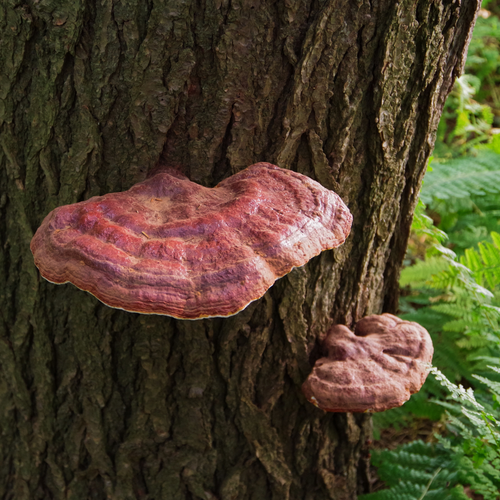

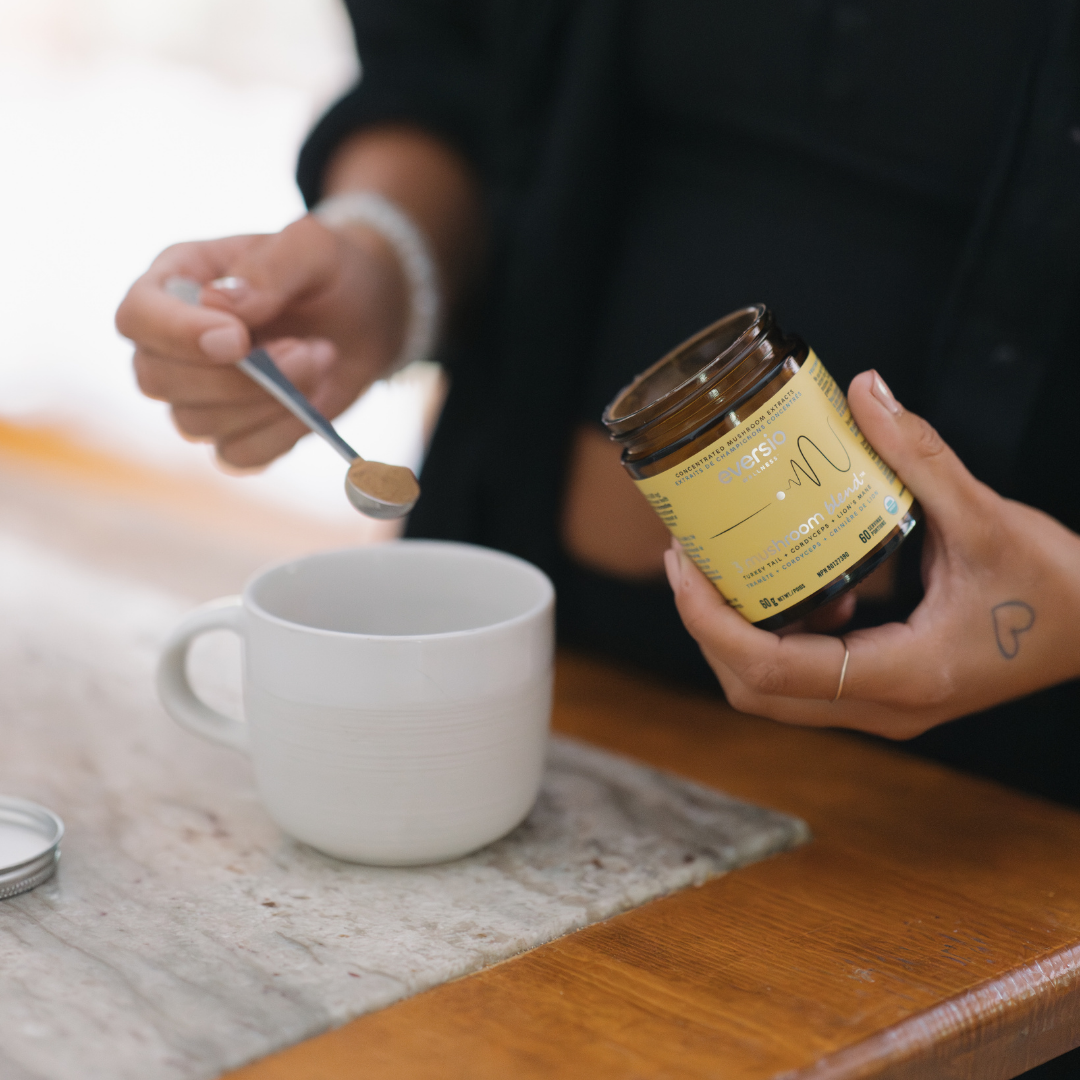

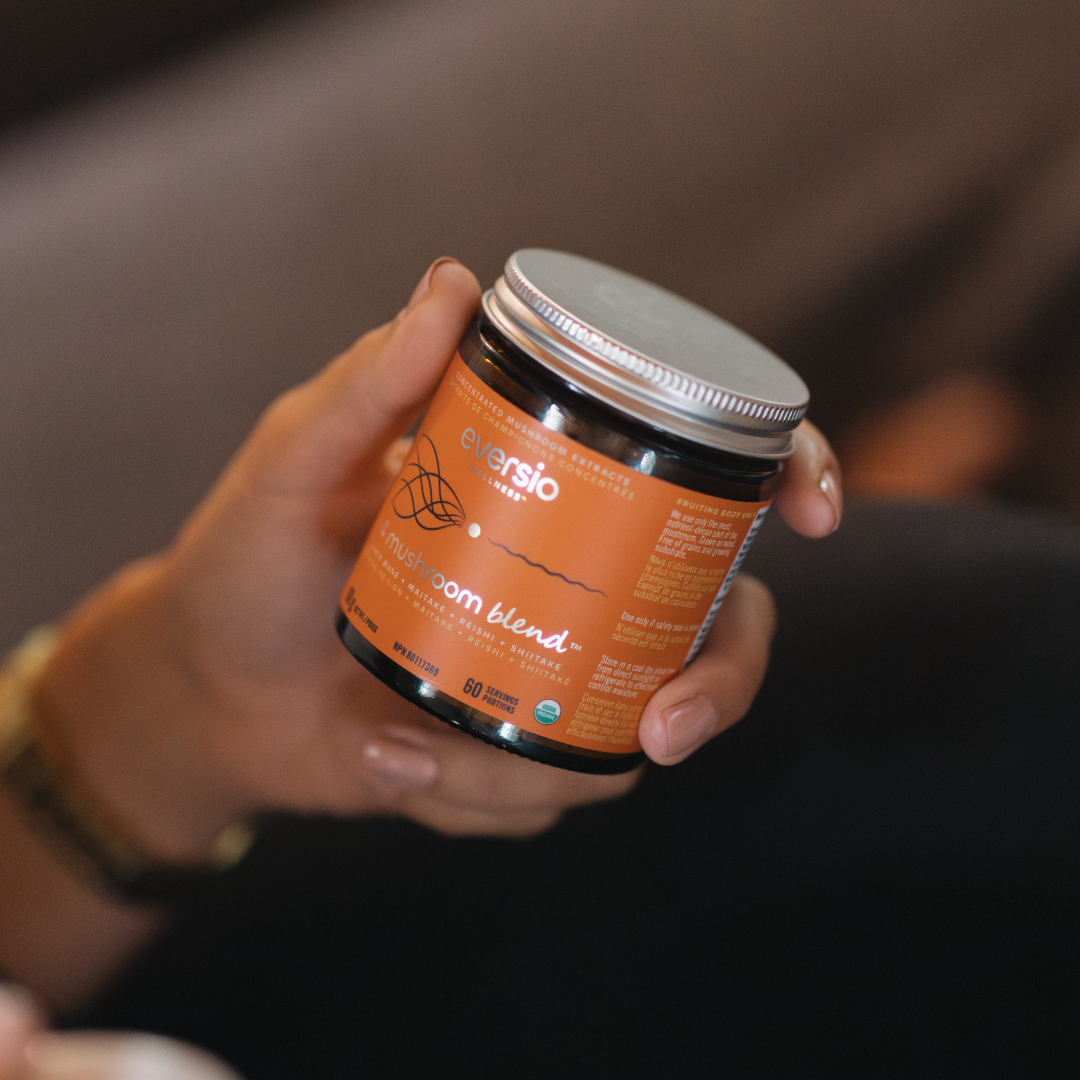



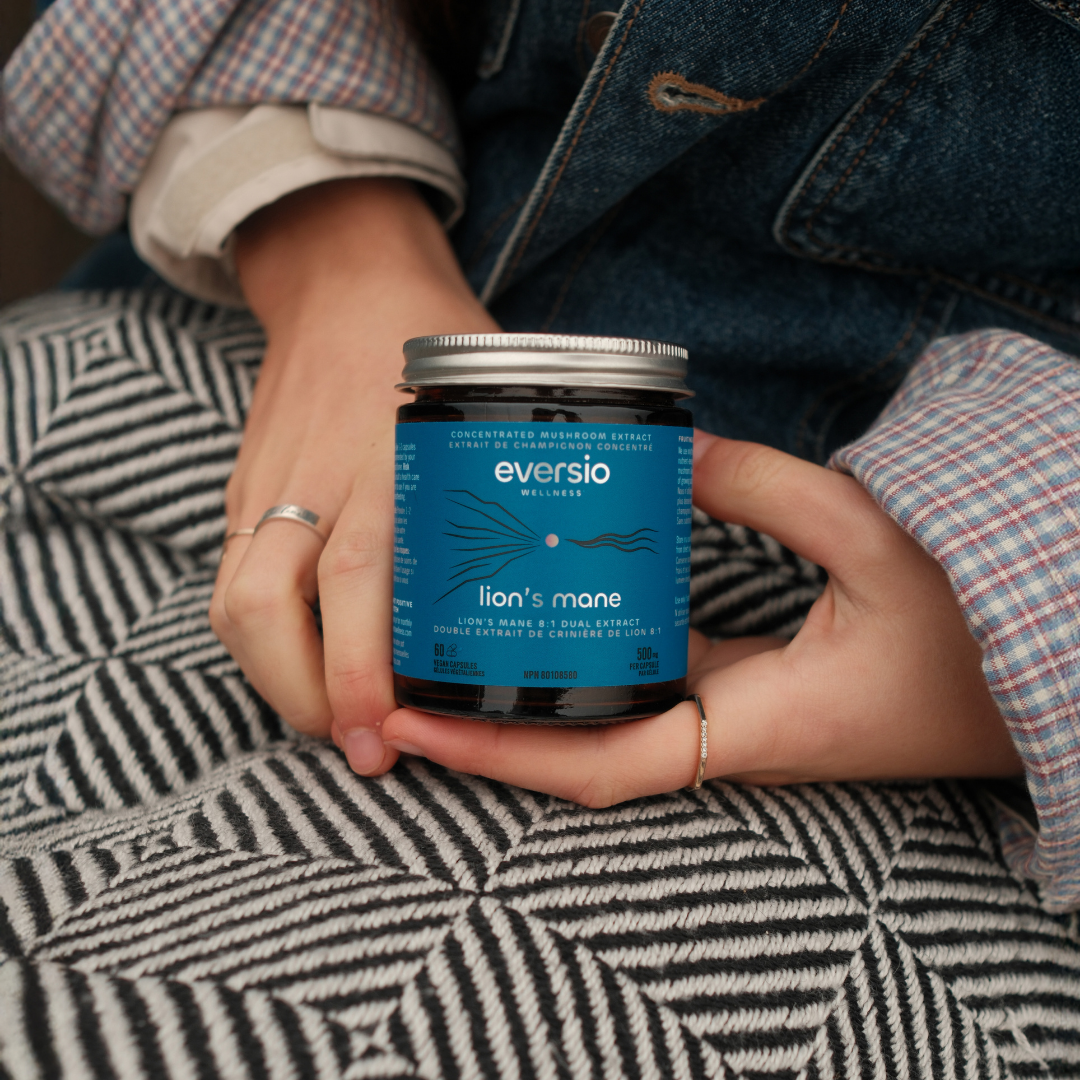


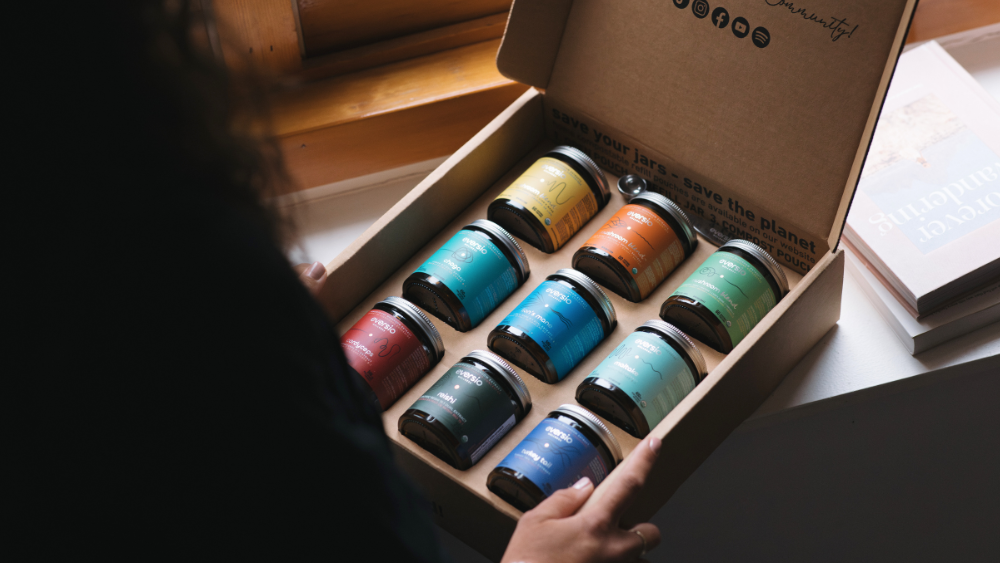







Leave a comment
This site is protected by hCaptcha and the hCaptcha Privacy Policy and Terms of Service apply.